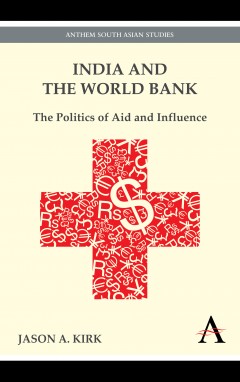India and the World Bank
The Politics of Aid and Influence
By Jason A. Kirk
- About This Book
- Reviews
- Author Information
- Series
- Table of Contents
- Links
- Podcasts
About This Book
'The World Bank needs India more than India needs it.' So goes an emerging consensus on both sides of the relationship between the Bank and its largest borrower. This book analyzes the politics of aid and influence, explaining but also challenging this insider view, while at the same time arguing against the popular perception that the Bank imposes its neoliberal agenda on a retreating Indian state. The Bank, struggling to remain relevant amid India's recent rapid growth and expanding access to private capital, has been caught up in a complex federal politics of economic reform and development. India's central government - far from being in retreat - has been the main driver of dramatic changes in the Bank's assistance strategy, leading toward a focus at the sub-national state level. Yet the closer the Bank's engagement with India's States, the more apparent their political, institutional, and developmental differences become. The Bank has vacillated between a 'focus States' strategy to encourage successfully reforming States, and a 'lagging States' strategy to give special assistance to those left behind by recent growth. The Indian government itself has encouraged this uncertainty, as its interests have evolved from a political strategy of selective support to reformers, to a renewed concern for regional inequalities. This timely study will be of interest to scholars, development practitioners, and engaged observers of globalization and the nation-state.
Reviews
‘Since the World Bank’s inception in 1944, India has been its largest borrower. Jason Kirk’s lucid study charts the dynamics and evolution of this relationship, focusing on the period after 1991, when India’s economic reforms firmly took hold. […] Kirk’s careful and well-written account will profit scholars of South Asia, the political economy of federalism, and international financial institutions. Policy-makers should also find much to ponder.’ —Gareth Nellis, Yale University, ‘Contemporary South Asia’
'This timely and empathetic but not uncritical policy analysis forcefully argues for an urgent debate within India over the continued need for concessional IDA funding - even as India graduates to middle-income status - to serve the interests of India, particularly of its poor in the lagging states.' —Baldev Raj Nayar, Professor Emeritus, Department of Political Science, McGill University, and author of 'The Myth of the Shrinking State: Globalization and the State in India'
'This is an extraordinarily fine-grained, novel and careful study of India's fraught relationship with the World Bank. Without resorting to polemical claims and assertions, Jason Kirk has produced a measured, incisive and cogent assessment of the World Bank's role in India's development.' —Sumit Ganguly, Professor of Political Science, Director, India Studies Program and Rabindranath Tagore Chair in Indian Cultures and Civilizations, Indiana University, Bloomington
Author Information
Jason A. Kirk completed his PhD with major fields in Comparative Politics and International Relations from the University of Pennsylvania in 2005. He currently works as Assistant Professor of Political Science at Elon University, North Carolina. His recent publications include 'Indian-Americans and the U.S.-India Nuclear Agreement: Consolidation of an Ethnic Lobby?', printed in the journal 'Foreign Policy Analysis'.
Series
India and Asia in the Global Economy
Anthem South Asian Studies
Table of Contents
List of Illustrations; Acknowledgements; Understanding the Bond between the World Bank and its Largest Borrower; The First Half-Century: From Bretton Woods to India's Liberalization Era; Remaining Relevant: The World Bank's Strategy for an India of States; Reasserting Central Government Control, Reorienting Aid toward "Lagging States"; A Bittersweet "Graduation" from Aid: can IDA Hold on to India, and Will India Let It? Commencement: India's Changing Relationship to Global Development Assistance; Notes; Bibliography; Index
Links
Stay Updated
Information
Latest Tweets



